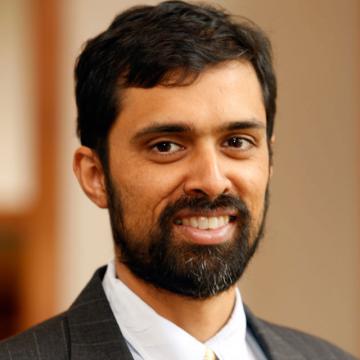For Trump, self-pardon would equal self-immolation
Senior Fellow Saikrishna Prakash says Trump could pardon himself, but shouldn't
This article is excerpted from Philly.com
In the wake of accounts that independent counsel Robert Mueller has turned his investigation to the first family, President Trump tweeted last weekend that he has the “complete power to pardon.” His aides and lawyers suggested that the president might pardon not only his son Donald J. Trump Jr. and Jared Kushner, his son-in-law, but himself too.
Criticism rained down from legal scholars and commentators. Noted liberal Harvard law professor Laurence Tribe argued that “the Constitution embodies [a] broad precept against self-dealing.” Many critics rely on a brief, three-paragraph analysis by Richard Nixon’s Justice Department. On Aug. 5, 1974, it concluded the president could not pardon himself because of “the fundamental rule that no one may be a judge in his own case.”
The constitutional text and history shows that Trump has the Constitution, if not the politics, about right. Article II declares that the president “shall have Power to grant Reprieves and Pardons for Offences against the United States, except in cases of Impeachment.” This text shows that the Framers knew how to make exceptions to the pardon power. They forbade a president from issuing pardons for impeachments, and they restricted them to federal crimes only. If the Framers had wanted to prevent presidents from pardoning themselves, they had only to add another exception.
Admittedly, a self-pardon would not advance the core purposes of the constitutional provision. As Alexander Hamilton explained in Federalist 74, the Constitution creates a pardon power “out of humanity and good policy” to allow for “mitigation from the rigour of the law.” Opponents of the Constitution responded, however, that the power ought not rest in the hands of the president for the very reasons raised today by Trump’s critics. They claimed that the legislature should hold the pardon power, because in cases of treason, “the connivance of the chief magistrate [i.e., the president] ought not to be entirely excluded.” In other words, the Anti-Federalists seemed to argue that the president should not have the pardon power because he might pardon himself and his coconspirators in a plot to commit treason.
Tellingly, Hamilton did not respond that the president could not pardon himself. He did not raise the claim that the Constitution silently adopted the rule that no one could be a judge in his own case. Instead, Hamilton argued that the benefit of vesting the power in the president alone outweighed the costs of possible abuse. Only a single man could act quickly in times of crisis to use pardons to break up a conspiracy. “In seasons of insurrection or rebellion, there are often critical moments, when a well-timed offer of pardon to the insurgents or rebels may restore the tranquillity of the commonwealth,” wrote Hamilton.
